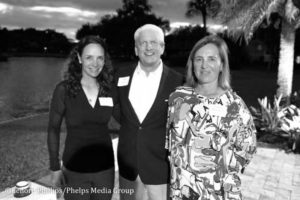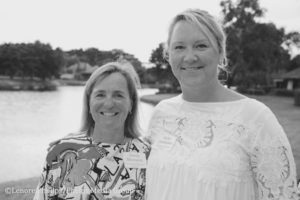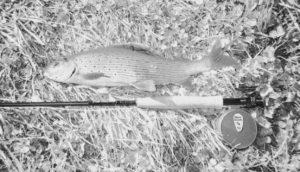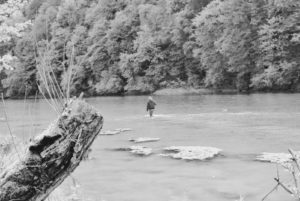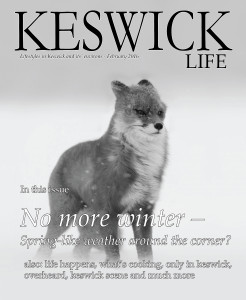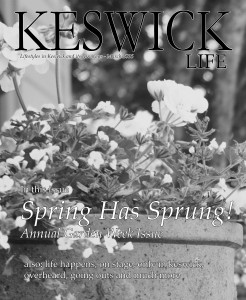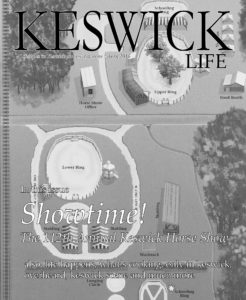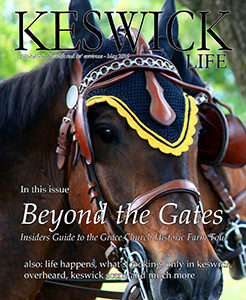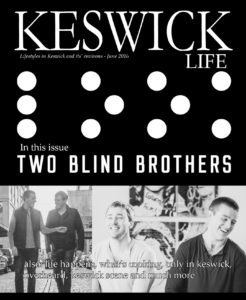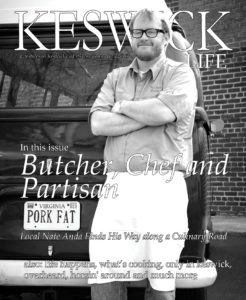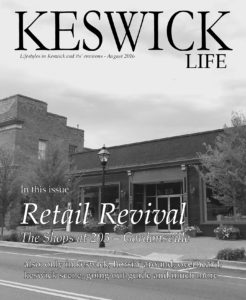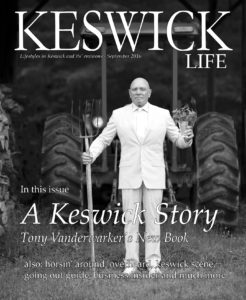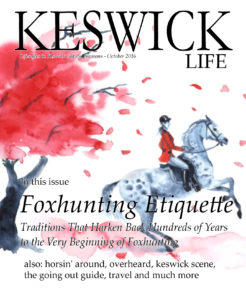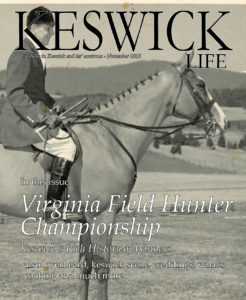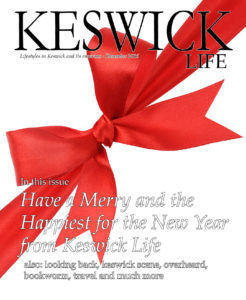I had only four days to fish, and was eager to start. As I headed east from the lodge toward the river, the sun had just cleared the horizon, but was already brilliant in a cloudless blue sky. Another typical Rocky Mountain day in the high desert. The glare disrupted my vision until the towering cliffs blocked the light source when I turned onto the seven-mile access road to descend to the water. It had been more than five years since my previous visit and I was, perhaps naively, surprised to find that the entire road was now paved. Rabbits were scampering everyplace, mostly cottontails, with a few jackrabbits interspersed. Do they favor pavement over dirt, or had I just forgotten that they would be there? A red fox crossed in front of my car, no doubt dreaming of hasenpfeffer.
I rounded a bend and the lovely river came into view. Another bend, and I saw the Little Hole parking lot. OMG! It had been expanded and, it too, was completely paved. Room for at least forty cars I’d guess, though nearly empty at this early hour. I pulled up to the ranger’s booth, and greeted the attendant, a cheerful looking lady. “Good morning. Beautiful day. What’s the damage for parking?”
“My, isn’t it a beautiful day and better still, you’re gonna get a bargain. Four dollars for all day, or ten dollars for four days. The permit’s also good for the lot at the dam.”
“What a deal! I’ll take the four days. Where are all the fishermen?”
“My gosh, it’s not even eight o’clock. Just wait an hour or two. They’ll be here. Always are. More than you’ll want.” Wanting none save myself, I couldn’t disagree.
The Green River rises in the Wind River mountain range in northeastern Wyoming, then flows south and enters Utah in the State’s southeast northeast corner (yes, Utah has two northeast corners), meanders east into Colorado for a short distance, returns to Utah and eventually joins the Colorado River in Canyonlands National Park, after flowing for 730 miles. The Wyoming section of the Green was always a great trout river, but the canyon section in Utah was too warm to support trout, until the completion of the Flaming Gorge Dam in 1964 (named after the most beautiful of the four red canyons that the dam filled) created a new trout fishing section after the river emerges from the bottom of the dam. The dam is impressive – about 500 feet high, 1,300 feet wide, with a reservoir behind it that’s over 90 miles long. From the dam, the river flows cold and clear for about 25 miles, through spectacular red canyons in the upper section, before reverting to its original condition as a muddy desert river (much of the mud flows in from tributaries) that cannot support trout. It continues through the Dinosaur National Monument, a recreational rafting section that is popular for viewing spectacular canyons, full of Native American petroglyphs and numerous signs of dinosaur activity. The confluence of the eponymously colored Green and the dirt brown Colorado, rivers that are roughly equal in size, viewed from an overlook 1,000 feet above, was first described in 1869 by renowned western explorer John Wesley Powell. It is an unforgettable sight – a just reward for a hot and dry 6-mile hike through the desert. But today I was bent on trout fishing.
I thanked the lot attendant, parked, donned my vest and boots, and assembled my rod. I had no waders, since half of my luggage missed the flight out, but no matter, July was a perfect time to wade wet. On Sunday, the guides can’t float with their clients on the seven miles of the Green River from the dam downstream to Little Hole, so I elected to walk upstream. The trail from Little Hole to the dam through the deep canyon provides the only foot access to the seven miles. It’s easy walking and stays close to the water, with a marker at every mile indicating how far you’ve come. I walked briskly, wearing imaginary blinders, accepting that I lacked the willpower to examine the water without wetting a line, and inspired by recalling the size of the parking lot and the attendant’s warning about how many anglers would be coming. Before nine o’clock I reached a spot that I recalled fondly from past trips, roughly a mile and a half from the parking lot, where the river forms a large eddy about ten yards off the bank. Figuring that I would now be out of range of most of the anglers coming behind me, I began to fish.
Trout love eddies, which trap insects in their circulating currents, and there were several nice brown trout hanging out just under the surface waiting for some natural insects to appear. I caught one, then moved on. For about eight hours I worked my way upstream, fishing familiar water, for over a mile. It was a glorious day, temperature in the mid-70s, and nary a cloud showed up. And the physical beauty of that section, with its massive red cliffs and crystal clear rapids and pools reflecting a markedly green hue, is unsurpassed by any river that I have fished. The pines and small willows along the river were full of cicadas, even though it was about a month since they had crawled out of the ground, and once the sun warmed them up, their constant chirping drowned out most other noises along the river. I have rarely seen a cicada actually floating on the Green, but ever since I first came to the river over 20 years earlier, a large dry fly imitating a cicada has been an effective attractor pattern. Unlike a grasshopper, a cicada immediately becomes comatose when it hits cold water. The fish know that cicadas cannot escape, so they rise to take the angler’s artificial cicadas very slowly and deliberately, creating much anticipation whether the fish decides to eat or not. Throughout the day, I used only dry flies – mainly cicada patterns – and caught a couple of nice fish every hour. A fine day. Not like the catching pace of my earliest trips here, but what river, or most anything else, is as good as we remember? An occasional recreational boat passed by me, but it’s a wide river and they moved to the other side, well out of my casting range. I was pleased to not see another wade fisherman in the upper stretch of the river.
On the return walk to my car, I encountered the first angler near the one-mile marker, and then perhaps thirty or so more spread out all the way to the parking lot. Frankly, that’s not a lot of fishing pressure for a large river that reputedly averages over 5,000 fish per mile, and where fish hold in all types of water. But, it’s not the experience that I seek.
On the second morning, I followed the river trail downstream from Little Hole for a couple of miles, which requires climbing about five hundred feet up a hill to get around some cliffs that hug the river and make streamside walking or wading impossible. After re-uniting with the riverbank, I fished downstream for more than a mile, catching about as many nice trout on dry flies as the previous day. This section of the river is more open, has fewer trees near the banks, and thus fewer cicadas. In the late afternoon in a large flat pool, there was a prolific hatch of tiny cream-colored mayflies, and the fish were rising to them eagerly. I had not anticipated encountering such flies, and I found only one fly in my boxes (I carry many hundreds) that was matched the size and color, though not the shape, of the naturals – a size 22 (about 1/6th inch long) midge pattern. Immediately a nice fish took the fly, and broke my 7x (about 2-lb test) tippet when I carelessly struck too hard. After that, as the hatch continued for over an hour, I tried more than a dozen other flies, resulting in lots of anticipation by me, but total rejection by the fish.
Despite my late failures, it was another near perfect day in beautiful surroundings. Only three guided boats passed me and, once again, I did not see another fisherman on foot. Enticed by the prospect of some rising fish and, as I am wont to do, favoring hope over experience, I returned to the same section on the third day, again fishing all day in solitude. The late afternoon hatch returned along with my inability to solve it, since the fly shop had no tiny cream mayflies for sale. But throughout the day lots of fish that weren’t rising came to large chernobyl hopper that looked unlike any creature living in the area or, I suppose, on the planet. I saw a few of the Mormon crickets that inhabit this section of the river. In the copper-colored variety, it is an unusually large and ugly bug. Many times I have tossed them in the water to float over feeding fish and not one has ever been eaten. It’s frustrating to this non-tier of flies that the local fly shops continue to inveigle anglers by selling big flies that match this grotesque creature, rather than the delicate and apparently delicious tiny mayflies.
On my fourth and last day, I drove to the parking lot at the dam, descended the steep switchbacked trail for about 500 feet to the river, and followed it downstream toward Little Hole for over a mile. It is claimed that the first mile of river below the dam has over 15,000 trout. I didn’t count them, but can attest that there are plenty. This section has numerous eddies and foam lines harboring nice fish, but they are almost all tight to the bank, as is the trail. If someone else is fishing ahead of you, many of the best fish will have been spooked, so I arrive early in the morning or the game is not worth the candle. Fortunately, for the fourth day in a row I did not encounter a single wading angler, and I caught some of the largest fish of my trip.
When I first fished the Green, rainbows were the most prevalent type of trout, but browns, brook trout, two varieties of cutthroats, and cutbows, a rainbow-cutthroat hybrid, also came to the net. On this trip it was about 75% browns and the rest rainbows. I have no idea what has happened to the other varieties, but I missed seeing their brilliant colors.
The Green is one of those big Western rivers, the mention of which to other anglers is often followed by groans and grousing about overcrowding and overfishing. Others that come to mind are the San Juan, Missouri, Madison and Henrys Fork. In fact, these are all very popular and are heavily fished, but primarily within several hundred yards of a parking area, or by floaters who rarely step out of the boat and who will usually move to the other side of the river to avoid wading anglers. My experience is that, on any of these rivers, even in the peak season, if you are willing to walk a mile or so you can fish all day in relative solitude.
Like many anglers, I’m a social creature who is often happiest fishing alone. I don’t know why. To avoid a competitive situation, or to not be embarrassed by bad technique or bad catching? Perhaps subconsciously, but I don’t think of fly-fishing as a competitive activity, nor do most experienced anglers with whom I have fished. Is it to have the best spots on the river to myself? There’s probably something to that but, frankly, sharing a large river with other anglers leaves plenty of opportunity for enjoyment and success. In fact, if I spent less time walking and more time standing and observing, I have no doubt that I would catch more and larger fish.
There are pools on some rivers that I have fished frequently that I think of as “my pools”. They may not be the best pools on the river, but they have been good to me, either because they play on my fantasies by appearing to be perfect trout pools, or because they have shown me memorable fish or fish hooked in a memorable way. My recollections of such pools are more clearly etched if I first came upon them while alone – certainly without a guide. When I travel to a river only to find a stranger already fishing one of “my pools”, it is a deflating experience indeed. I can’t explain it, and it seems juvenile, but it is what it is and I don’t expect it to change.
But back to the Green. It’s a lovely river in a spectacular setting with more than ten miles of water accessible solely by walking or boat. Dry flies can be used effectively all day. You can leave the East early in the morning, arrive in Salt Lake City about noon, drive four hours, and be fishing by late afternoon. There are decent accommodations and restaurants nearby, as well as two good fly shops, Just don’t expect to buy any size 22 flies.



